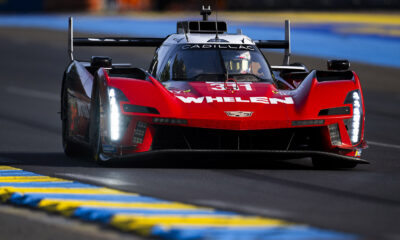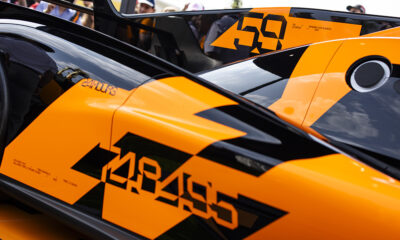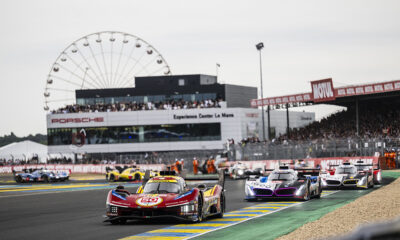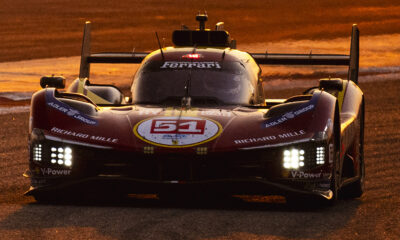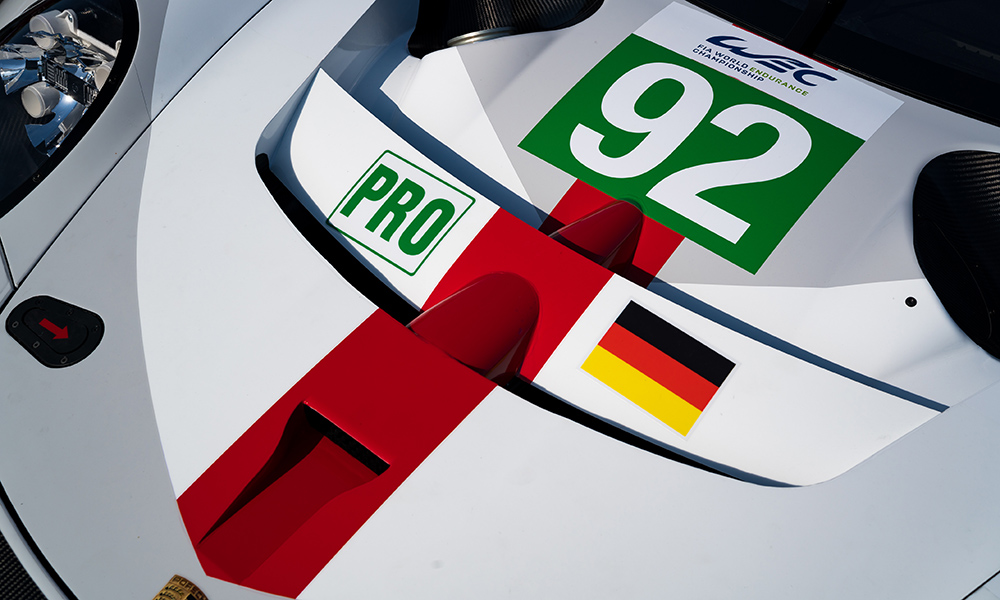
Photo: Porsche
Porsche’s interest in the the FIA and ACO’s Hypercar formula has cooled, with the German manufacturer not having been involved in technical working group meetings since July, according to its director of GT factory motorsports.
Pascal Zurlinden confirmed to Sportscar365 that Porsche has become a “spectator” in the formation of the regulations, which are set to debut in the 2020-21 FIA World Endurance Championship season.
It comes after having been an active participant in helping shape the ruleset, and an evaluation of a possible return to top-class competition by as early as the 2021-22 season.
While not dismissing a potential Hypercar program in the future, Zurlinden indicated they are now in a wait-and-see approach to see how the category develops.
So far, only Toyota and Aston Martin have officially committed to the class from an OEM standpoint.
“We’re still following what the regulations discussions are but at the moment no decision,” Zurlinden told Sportscar365.
“We are only spectators. We are not working on the regulations, as we look at what’s going on in DPi or any [new] regulations.”
Porsche, along with Toyota, Aston Martin, Ferrari, Ford and McLaren, were the initial six manufacturers involved in the technical working groups, which dated back to last summer.
Sportscar365 understands Porsche had been proposing a potential powertrain package that could have been utilized in both Hypercar and IMSA’s new-for-2022 DPi regulations.
Those talks, however, appear to have died down in recent weeks.
Zunderlin said Porsche’s current focus remains in GTE, with the manufacturer having given its new-generation Porsche 911 RSR a win on its debut last weekend at Silverstone.
“[GTE] is a really competitive platform,” he said. “I’m sure in Le Mans it will be even more competitive because Corvette, and who knows if BMW is also coming next year.
“At the end, it will still be a really great battle and we have a [new] car.
“Going away from this category to a category where we don’t know what the future is or who are the competitors… So we have to see.”
Daniel Lloyd contributed to this report




















